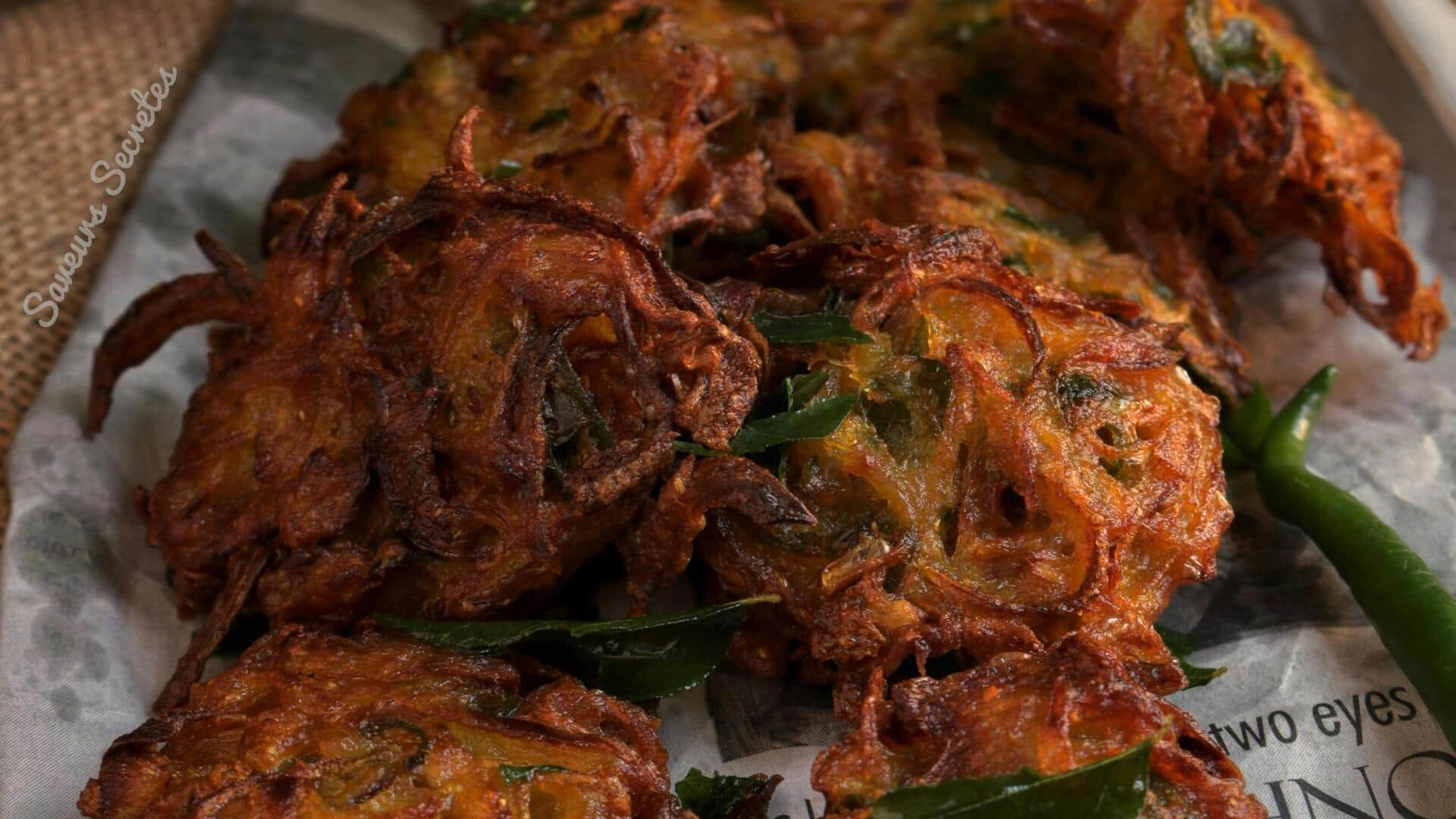
How pakora became a global favorite snack
What's the story
Pakora, a beloved snack across South Asia, has evolved from its humble beginnings to become a global favorite. This deep-fried delight, made with gram flour and various vegetables, has found its way into the hearts and stomachs of many around the world. Its journey reflects cultural exchanges and culinary innovations that have transformed this simple snack into an international sensation.
#1
Origins of pakora
The history of pakora dates back to ancient India, where it was first known as bhaji. Made with local vegetables and spices, it was a staple in Indian households. The dish soon became popular in royal kitchens, where chefs experimented with different ingredients and flavors. This experimentation led to the modern-day pakora we know today.
#2
Global expansion
Pakora's journey beyond South Asia began during the British colonial era, when Indian cuisine started gaining popularity in Europe. As Indian restaurants opened up across cities, they introduced pakoras as part of their menus. The dish's versatility and ease of preparation made it an instant hit among non-Indian communities.
#3
Variations across cultures
As pakoras traveled across borders, they adapted to local tastes and ingredients. In some countries, potatoes or spinach are commonly used; in others, cheese or paneer takes center stage. These variations highlight how pakoras have been embraced by different cultures while retaining their core identity.
#4
Modern-day popularity
Today, pakoras are available at street stalls and high-end restaurants alike all over the world. They are commonly served during festivals or special occasions, but are also relished as an everyday snack. With the rise of vegetarianism and demand for comfort food, pakoras continue to grow in popularity globally.